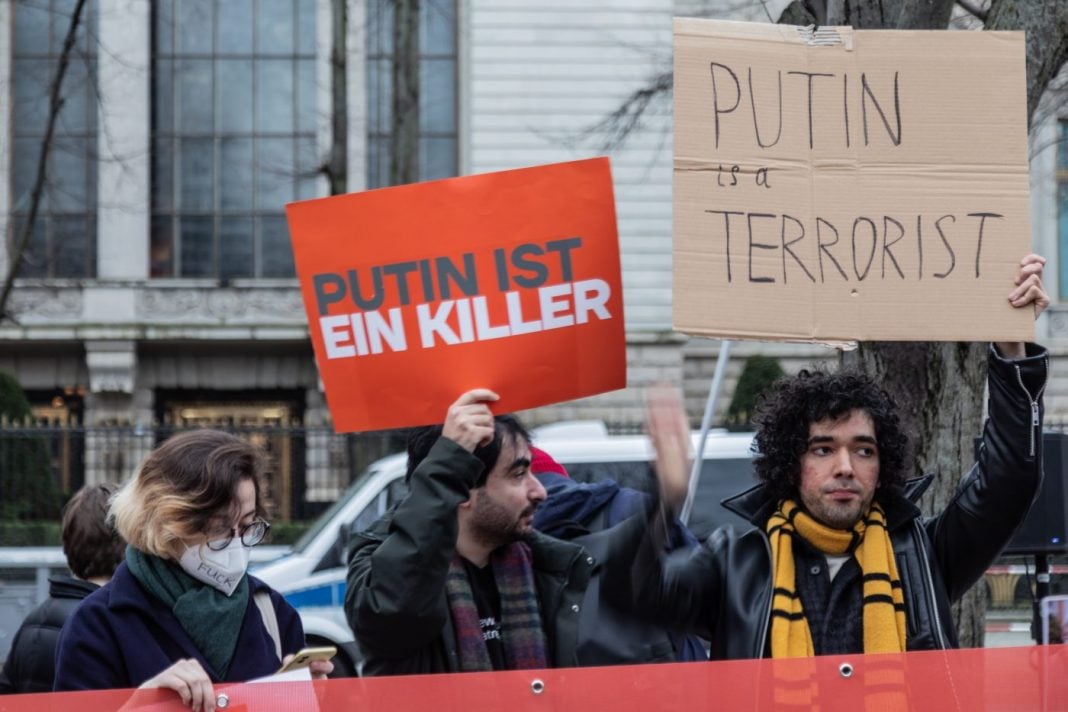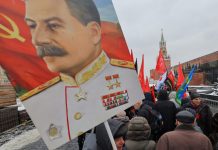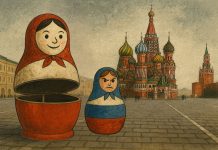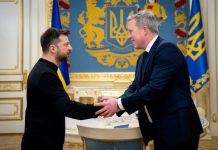By Kseniya Kirillova, for CEPA
Some Russian propagandists have broken with the Kremlin narrative by questioning if NATO and Ukraine are behind an upsurge in terrorist attacks.
The June 23 attack on police, churches, and a synagogue in Dagestan, which killed 20 and wounded 46, created an unexpected reaction in the Russian media. A series of propagandists, Telegram channels, and even former officials loyal to the regime said the cause would be found in Russia’s internal problems rather than in Brussels or Kyiv.
It was the third successful terrorist attack in as many months and exposed the inability of Russia’s security services to deal with the threat. And this time the terrorists turned out to be relatives of major figures from the Dagestani elite and even included members of Vladimir Putin’s United Russia party.
“If we attribute every terrorist attack involving national and religious intolerance, hatred, and Russophobia to the machinations of Ukraine and NATO, then this pink fog will lead us to big problems,” former Deputy Prime Minister Dmitriy Rogozin, now a senator for the occupied Zaporizhzhia oblast, wrote on his Telegram channel.
His post was quoted immediately by Tsargrad, a far-right television station, and the Military Review website, which is close to the Ministry of Defense. “It is high time to recognize that terrorism has religious and national roots,” military analyst Aleksandr Staver wrote on the site.
Viktor Biryukov, another analyst, added that the problem is much more widespread than isolated groups in Dagestani villages. He wrote that radical Islamism affects nearly all spheres of society, including prisons, where “supporters of radical Islam not only feel comfortable but are recruiting supporters.”
The Kremlin’s strategy remains to blame outsiders rather than consider Russia’s internal problems, which have incubated terrorism. Alongside causes such as the influence of ISIS preachers and socio-economic difficulties in Dagestan, it was the actions of the Russian authorities that fueled radicalization.
War feeds societal breakdown, normalizing crime, removing moral barriers, and encouraging murder and violence. At the same time, Putin has repeatedly declared Russia a stronghold of traditional values.
In practice, “traditional values” have meant federal authorities ignoring the lawlessness that has grown in Chechnya, including reprisals against the LGBT+ community and violence against women, including their abduction and murder. Chechen security forces have openly abducted women fleeing domestic violence and federal law enforcement agencies have condoned it.
No less dangerous are the Kremlin’s flirtations with foreign terrorist regimes, including Hamas and the Taliban. On May 27, the Russian Foreign Ministry and the Ministry of Justice reported to Putin that the Taliban could be removed from the list of terrorist organizations. The president reacted favorably to this proposal, saying he would discuss it with his partners.
Yet even the Nezygar Telegram channel, closely associated with the Presidential Administration, published a post by journalist Anastasia Mironova warning that “our country has nurtured an environment that ensures the full production cycle of an Islamist terrorist attack.”
At the same time as violence grows in the Caucasus, Putin’s regime is using national minorities as cannon fodder in Ukraine. Discontent is understandably rising among those peoples, with one Buryat analyst warning losses are so high that, “in one generation, these nations will simply disappear.”
Igor Dmitriev, a pro-Kremlin political scientist and orientalist, acknowledged these factors in a posting on Nezygar. The war in Ukraine cannot compete with the attraction of radical Islam, he warned.
“The system of education in the mountains stimulates masculinity and a penchant for violence in boys,” he wrote. “The Special Military Operation cannot compete ideologically with Islam because Islam is a religion, and the SMO is a leadership mistake.”
However, the factors that have provoked terrorism in Russia are the same as those that make a genuine fight against it impossible. The Kremlin will never admit its guilt or renounce either the war or its image as the guardian of traditional values.
A propaganda myth of recent years describes Russia as a unique civilization, capable, unlike others, of completely integrating different peoples. Putin himself has repeatedly stated that “strong interreligious, interconfessional peace” reigns in the country, and “the brotherhood of Christians and Muslims strengthens the unity of the Russian people.”
To abandon this myth and accept the reality of homegrown terrorism would reveal a hole at the heart of his entire project. As a result, the real causes of terrorism will continue to be ignored, and the problem will get worse.
By Kseniya Kirillova, for CEPA
Kseniya Kirillova is an analyst focused on Russian society, mentality, propaganda, and foreign policy. The author of numerous articles for CEPA and the Jamestown Foundation, she has also written for the Atlantic Council, Stratfor, and others.
Europe’s Edge is CEPA’s online journal covering critical topics on the foreign policy docket across Europe and North America. All opinions are those of the author and do not necessarily represent the position or views of the institutions they represent or the Center for European Policy Analysis.





